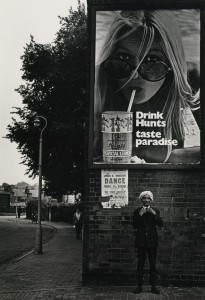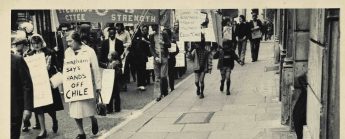 In case you have missed some of these, this post is a quick reminder that we now have 20 blog responses to the Modern British Studies Conference hosted at the start of last month. These can all be found on our Responses page. The blogs make very interesting reading and we want to express many thanks to all of those who have contributed so far. We look forward to hearing more and continue to welcome contributions.
In case you have missed some of these, this post is a quick reminder that we now have 20 blog responses to the Modern British Studies Conference hosted at the start of last month. These can all be found on our Responses page. The blogs make very interesting reading and we want to express many thanks to all of those who have contributed so far. We look forward to hearing more and continue to welcome contributions.
Since we last updated this main blog posting Christienna Fryar’s wide-ranging reflections on the event, which initially appeared on her own blog, have been shared. Nichola Tonks offered her perspective on the conference as a student about to start an MA.
The discussions on the foregrounding of emotional history or, at times, history with emotions made central has continued, with contributions from Rhodri Hayward and Charlotte Greenhalgh on the significance of such research and the methodological and conceptual issues generated by such approaches. This was also picked out in Laura Carter’s blog as an important way of helping to contribute towards the vital study the ‘everyday’.
As well as reflecting on the significance of the ’emotional turn’, Natalie Thomlinson suggested that the conference’s balance towards contemporary history, the place of gender (raised by Jessica Meyer’s earlier contribution), and the challenges of writing and research histories of race were key points of deliberation in the conference.
Similarly, James Greenhalgh noted the intellectual intensity of discussion around the history of emotion, before offering some encouraging words on the development of academic careers.
Taking a slightly different approach, both in terms of authorial photograph and mode of comment, Christine Grandy commented in depth on one specific panel discussing the practice of public histories and challenges of ‘engagement’. Such issues (along with others) were also touched upon in Gareth Millward’s review of the conference which questioned whether we have been ‘preaching to the converted’ in our approach to public history, hinting that the heavy use of social media at the conference mau have had something of an ‘echo chamber’ effect.
Significantly, questions about access to the past is not just about the public, as Sarah Mass explained in her discussion about the difficulties many have in studying modern Britain in light of the policing of international borders.
And, finally, this morning we posted Andrew Seaton’s reflections on the need (institutionally and intellectually) for comparative work.
We are really delighted to have shared these responses, they have been as useful and engaging as the conference itself and we look forward to posting more when (and if) they arrive!

Reblogged this on oshriradhekrishnabole.
Wonderful website. Lots of useful info here. I’m sending it to several buddies ans additionally sharing in delicious. And of course, thanks for your sweat!
Thanks designed for sharing such a good thought, piece of writing is good, thats why i have read it completely
Appreciating the time and effort you put into your website and in depth information you offer. It’s awesome to come across a blog every once in a while that isn’t the same unwanted rehashed material. Wonderful read! I’ve saved your site and I’m adding your RSS feeds to my Google account.
Since the admin of this site is working, no doubt very shortly it will be well-known, due to its quality contents.
With havin so much content do you ever run into any problems of plagorism or copyright infringement? My blog has a lot of exclusive content I’ve either authored myself or outsourced but it appears a lot of it is popping it up all over the web without my permission. Do you know any ways to help reduce content from being ripped off? I’d really appreciate it.